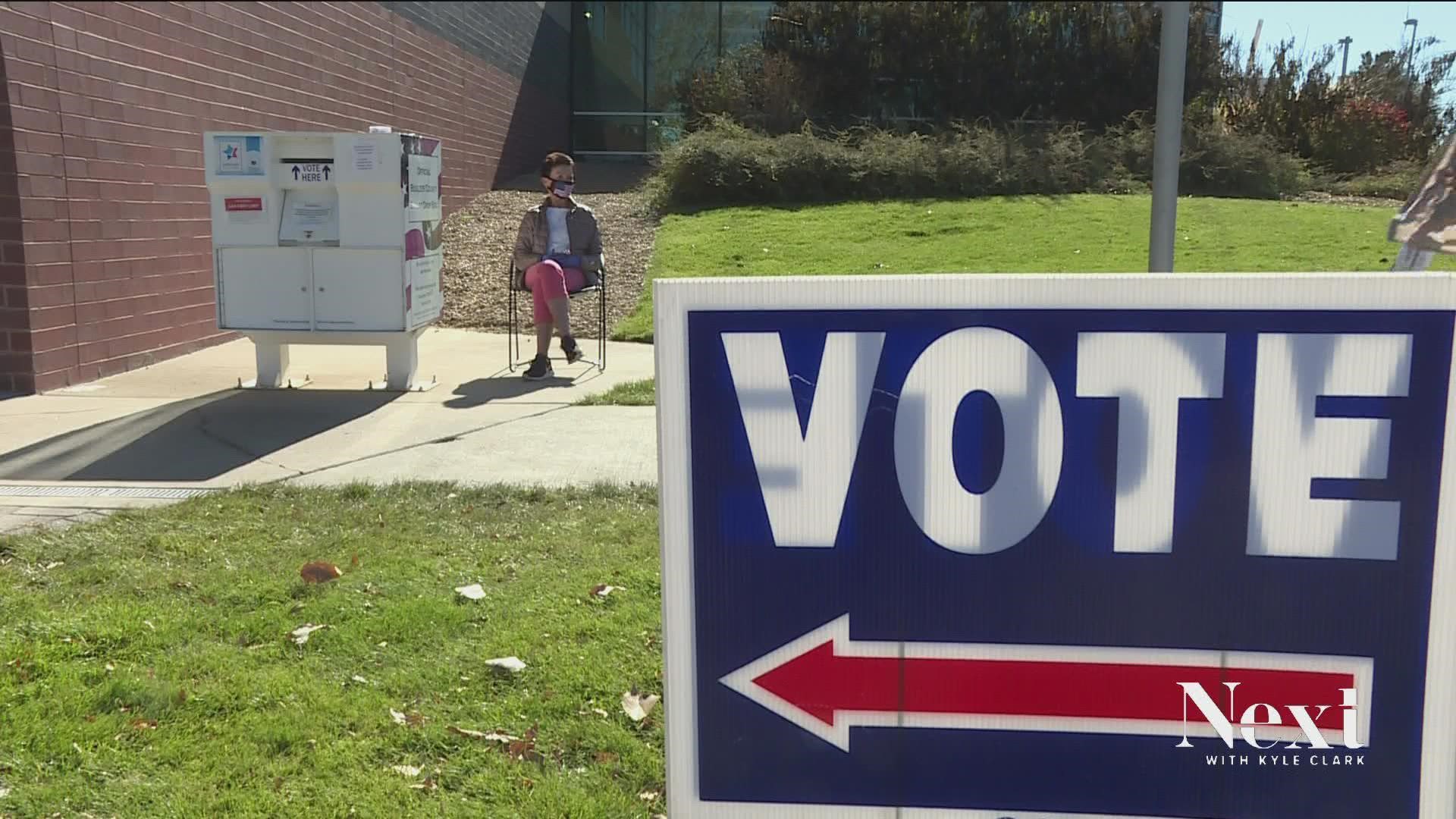DENVER — She may have lost the Republican primary, but election denier Tina Peters still left her mark on the office she wanted to run.
The Colorado Secretary of State's Office has crafted new rules ahead of the November election. You could call them the Tina Peters rules.
They're rules that spell out who can have access to election equipment. Rules about what computer information can be copied. Rules that seem to be in response to clerks like Peters and Republican Dallas Schroeder from Elbert County.
The new rules, which went through a public hearing in May, are 55 pages long.
One rule limits who is allowed to be present for the "trusted build," the update to election computers before each election.
"The Republican Party asked and, unfortunately, the Secretary of State disagreed, we thought that it would be a good idea to have party-appointed watchers to be present for that," said Colorado Republican Party general counsel Chris Murray.
The only people allowed at the Trusted Build are:
- Secretary of State staff
- Staff from the voting system vendor (Dominion or Clear Ballot)
- County clerk and/or clerk employees
Another new rule restricts county clerks from copying the entirety of the election equipment hard drives.
Copying hard drives led to court cases against Peters and Schroeder.
"You have court fights, we've had those, right? And then, the bureaucrats take over. And they make really detailed rules to try to avoid future fights. I will say, in my experience as an attorney that works in this space, the more detailed rules, actually, tend to create more fights because it gives us more things to pick at and fight over," said Murray.
Another new rule addresses election watchers at ballot drop boxes.
In 2020, a so-called "First Amendment auditor" stood near a ballot drop box outside of the Arapahoe County Administration Building recording voters dropping off their ballots.
"I would not be within my rights to go inside and videotape anybody filling out and marking their ballots, which I have no interest in doing, but out here in a public forum, no one's doing anything private out here," he said on the recording posted to YouTube.
"We want to protect our voters right to vote without feeling intimidated or harassed or being prevented from voting in an unsafe manner," said Arapahoe County Elections Director Peg Perl. "Inside of a vote center, you can't have someone filming or getting too close to a voter, and those same rules will apply now to watchers that are at the 24-hour drop boxes."
Under the new rules, one election watcher from each party can stand near ballot drop boxes, as long as they go through training, are certified, wear a badge and do not record video or take pictures.
"What the new rules do, they basically treat our 24-hour drop boxes the same way that we treat voting inside a vote center," said Perl.
Many drop boxes are in public spaces, like city or county buildings, post offices and libraries. The new rules do not prevent a person, who is not an election watcher, from standing near a ballot box and recording video, as long as they are not intimidating or harassing.
"It's good that now watchers can go and physically observe ballot drop locations, that's great. Your question is really good, though. A lot of these boxes are out in the middle of public areas. So, what's to stop a member of the public, who's curious, from sitting outside and just watching a drop box?" said Murray. "If you're just standing there, unless you're menacing, unless you're threatening people or unless you're being a jerk trying to keep them from the box, I don't know how that's going to be enforced."
One of the rules that was proposed, but did not make the final list would have given clerks the power to reject candidate nicknames from appearing on the ballot if they contained a political slogan or political speech.
Republican State Rep. Dave Williams (R-Colorado Springs) wanted to appear on the ballot for the 5th Congressional District as Dave "Let's Go Brandon" Williams. That is code for "F--- Joe Biden." He sued to have the nickname used after the Secretary of State's Office rejected the nickname. A judge ruled against his use of the nickname.
SUGGESTED VIDEOS: Full Episodes of Next with Kyle Clark

